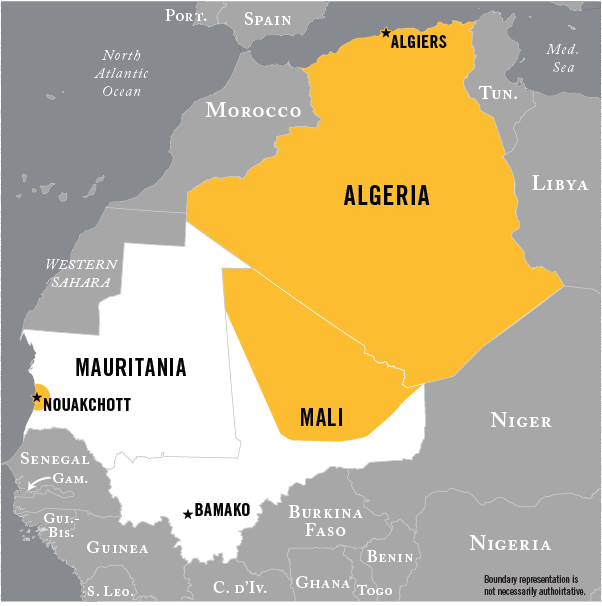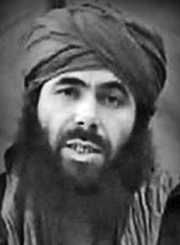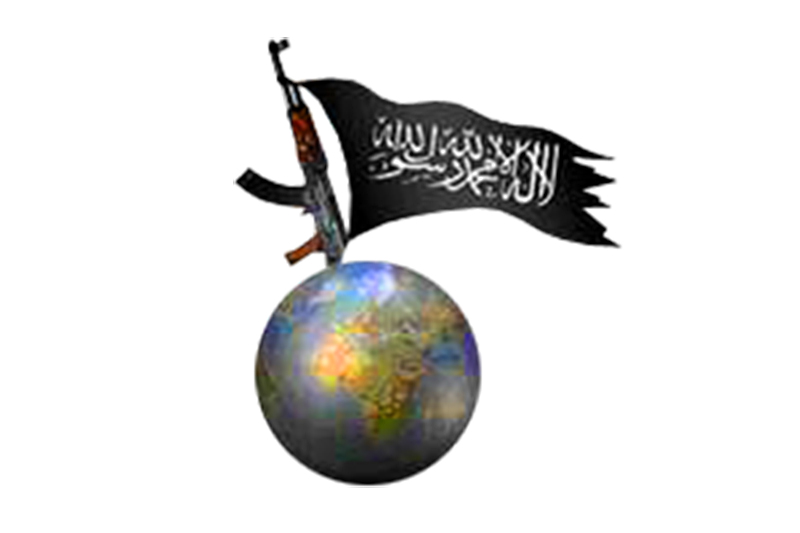TERRORIST GROUPS

BACKGROUND
Al-Qa‘ida in the Lands of the Islamic Maghreb is an Algeria-based Sunni Muslim extremist group. It originally formed in 1998 as the Salafist Group for Preaching and Combat (GSPC), a faction of the Armed Islamic Group, which was the largest and most active terrorist group in Algeria. The GSPC was renamed in January 2007 after the group officially joined al-Qa‘ida in September 2006. The group had close to 30,000 members at its height, but the Algerian Government’s counterterrorism efforts have reduced GSPC’s ranks to fewer than 1,000.

AQIM historically has operated primarily in the northern coastal areas of Algeria and in parts of the desert regions of southern Algeria and the Sahel, but in recent years has focused on expanding into Libya and Tunisia. AQIM employs conventional terrorist tactics, including guerrilla-style ambushes, and mortar, rocket, and IED attacks. The group’s principal sources of revenue include extortion, kidnapping for ransom, and donations. In June of 2009, the group publicly claimed responsibility for killing US citizen Christopher Leggett in Mauritania because of his missionary activities. In 2011, a Mauritanian court sentenced a suspected AQIM member to death and two others to prison for the American’s murder.
AQIM since 2010 has failed to conduct the high-casualty attacks in Algeria that it had in previous years. Multinational counterterrorism efforts—including a joint French-Mauritanian raid in July 2010 against an AQIM camp—resulted in the death of some AQIM members and possibly disrupted some AQIM activity. In 2011, however, AQIM killed two French hostages during an attempted rescue operation, and in 2013 killed one French hostage in retaliation for France’s military intervention in Mali. AQIM continues to hold one South African and one Swedish hostage who were abducted in 2011, and in June 2015 released an English language video of the two.
In 2012, AQIM took advantage of political chaos in northern Mali, working with local Tuareg national elements to take control of major cities, including Kidal, Gao, and Timbuktu. The Islamic militant group Ansar al-Din was formed to support the creation of an Islamic state in Mali ruled by sharia.

In 2013 AQIM suffered setbacks in northern Mali following the French-led military intervention in the region, which caused them to lose control of the major cities there and resulted in the deaths of a number of key personnel. As of 2015, however, AQIM was regrouping in parts of northern Mali and conducted a number of attacks on UN forces in the region.
Since 2011, dissident groups of AQIM members broke away to form MUJAO (Movement for Unity and Jihad in West Africa) and al-Mulathamun Battalion and its subordinate unit al-Muwaqi‘un Bil-Dima (“Those Who Sign With Blood”) led by former AQIM battalion leader Mokhtar Belmokhtar. In August 2013 these groups merged to form al-Murabitun and officially formalized the groups’ ties; their stated goals are to “unite all Muslims from the Nile to the Atlantic in jihad against Westerners” and to curb French influence in the region. In 2014 and 2015 additional AQIM members split from the organization to join groups affiliated with the Islamic State of Iraq and the Levant.



